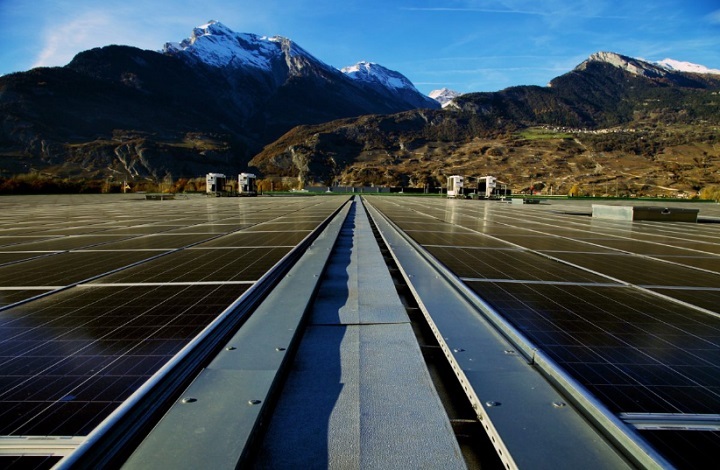If you’re interested in energy investing, you probably know that General Electric’s (NYSE:$GE) was one of the main reasons that First Solar (NASDAQ:$FSLR), an Arizona-based solar manufacturer, was able to stay afloat in the market. In 2013, General Electric sold their solar technology to First Solar, which, at the time, was struggling to make its solar technology competitive with the falling costs of Chinese solar powers. Combining First Solar’s scale with General Electric’s technology, First Solar was able to rise from the dead. Despite General Electric, a multinational conglomerate corporation, leaving the solar business four years ago, it makes more sense than ever for the Boston-based company to get back into the solar industry as the sector now has a model that fits with GE’s.
The solar industry has changed a lot in the last four years
It was only four years ago that solar producers, including First Solar, SunPower (NASDAQ:$SPWR), and Canadian Solar (NASDAQ:$CSIQ), were trying to ride out the rush of solar panels from China which resulted in a drop in panel prices. All three of these companies started to invest in the development of their own pipeline of solar projects, which would guarantee demand for solar panels despite the ups and downs of the development cycle. During this time, this plan of action made a lot of sense as the money invested in the solar industry wasn’t in solar manufacturing, but rather it was in project development.
However, in 2017 the solar development division had become extremely competitive due to solar companies and third party project creators burrowing into the business. Essentially this profit left companies, such as First Solar and SunPower, switching from project development to pre-engineered solar solutions. And that, ladies and gentlemen, is why General Electric’s should get back into the solar business.
Where does General Electrics fit into the solar sector?
If all goes as planned, First Solar will carry out its Series 6 upgrade, thus leading the company to be in position where it can present a full suite of products to product developers. Not only will it produce solar panels, but it will also provide developers with racking, design services, energy storage, and inverters. This can be compared to the component sales General Electric’s has for lightbulbs or substations.
General Electrics could add First Solar’s products to its product portfolio as well as using their balance sheets and financing arm to provide services to product developers. General Electrics could potentially offer loans, or tax equity capital for financing solar projects.
All in all, adding First Solar could help to build GE’s product portfolio in the solar sector. It could also add easier unification for investors and new energy storage products.
General Electrics should 100% buy First Solar.
Even though there are numerous solar companies out there that General Electric’s could purchase, First Solar makes the most financial sense. Experts have predicted that First Solar could have more than $1.5 billion of net cash on the balance sheet at the end of 2017. Additionally, First Solar is expected to have a non-GAAP profit of $0.25 to $0.75 per share.
By adding First Solar to their portfolio, General Electrics has the potential to move further into the flourishing solar industry supply chain. It’s important for General Electrics to realize that there are benefits to buying First Solar and the company is in a very different position from when General Electrics sold First Solar their technology to the company four years ago. Rather than deserting it’s solar aspirations, now is the time for General Electrics to enter back into the solar sector while it is still relatively cheap.
Featured Image: twitter











